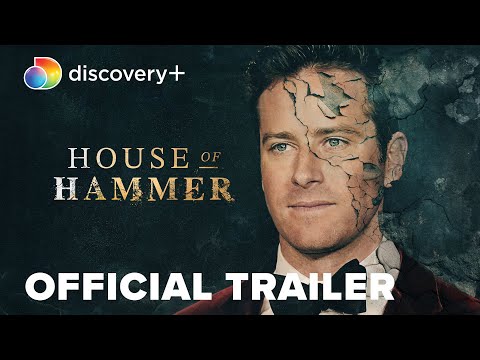In 2021, Armie Hammer, once a prominent actor and a Hollywood heartthrob, found himself at the center of a controversy over accusations of cannibalism.
During a recent podcast appearance, the 37-year-old confronted the claims that have hounded him for years.
“People called me a cannibal, and everyone believed them,” he said. “They’re like, ‘Yep, that guy ate people’… Do you know what you have to do to be a cannibal? You have to eat people. How am I going to be a cannibal? It was bizarre.”
Of course, he’s right. After all, what is a cannibal but a human who consumes the flesh of another?
Other allegations dogged the “Man from U.N.C.L.E.” star, including odd online behavior and accusations of sexual assault. The cannibalism claims, though, caught the attention of both the media and public.
“A neutron bomb went off in my life. It killed off [everything].” Armie Hammer is speaking out for the first time in years: https://t.co/HCn67Scfc3 pic.twitter.com/mbVteHXgNZ
— IndieWire (@IndieWire) June 17, 2024
Cannibalism is a topic that has long fascinated and horrified humanity. The act is steeped in myth and legend, evoking disgust and fear. From ancient tales to modern media portrayals, the concept strikes at our deepest taboos and challenges our sense of humanity.
In films like “Alive,” where survival forces unthinkable choices upon desperate individuals, cannibalism serves as a shocking but effective narrative tool. It pushes us to contemplate the boundaries of human behavior and the extremes people may endure under duress.
Yet, such depictions also risk sensationalizing a harrowing reality for mere entertainment value.
Throughout the history of Hollywood cinema and television, cannibalism has been a recurring theme, often reflecting societal fears, cultural taboos and sometimes dark humor. In the early days of cinema, from the 1930s to the 1950s, cannibalism was occasionally hinted at or used as a plot device in horror films and adventure stories, though usually in a sensationalized manner.
These portrayals often played into the era’s fascination with the macabre and mysterious.
The 1960s and 1970s, however, saw more explicit depictions of cannibalism emerge, particularly in exploitation films like “Cannibal Holocaust” (1980), which infamously depicted graphic scenes of cannibalism among indigenous tribes in the Amazon rainforest.
On this date…Cannibal Holocaust was released in the US in 1985 and has been shocking audiences since.
I’m YOUR OPINION, is this film the first found footage film! Let us know in the comments below! pic.twitter.com/c8qacTQQpY
— PVDHORROR (@PvdHorror) June 19, 2024
In the 1980s and 1990s, cannibalism began to be portrayed with more psychological depth and complexity. Films like “The Silence of the Lambs” (1991) introduced Hannibal Lecter, a sophisticated and cannibalistic serial killer who became an iconic character in popular culture.
The portrayal of Lecter, played by the brilliant Anthony Hopkins, shifted the focus towards the psychological aspects of cannibalism, exploring themes of power, control, and morality.
Moving into the 2000s and 2010s, there was a continued exploration of cannibalism in more nuanced and varied ways. The TV series “Hannibal” (2013-2015) further delved into the complexities of the human psyche and garnered critical acclaim for its sophisticated storytelling and character development.
Meanwhile, films like “Raw” (2016) took a different approach by using cannibalism as a metaphor for societal pressures and personal identity, blending horror with coming-of-age themes.

Though the act of cannibalism has been portrayed in a more sophisticated manner, the fact remains the same: cannibalism is bad, and anyone who engages in it is probably not a person you would want to hang around with.
Which brings us back to Hammer.
His case underscores a troubling trend in today’s culture: the digital lynching of public figures based on often flimsy or misconstrued evidence. The term “cannibal” became a loaded weapon in a media frenzy that ultimately derailed his career.
It’s a stark reminder of how swiftly and mercilessly the virtual mob can descend, consuming reputations and careers with little regard for nuance or truth. In a culture that thrives on exposing darkness, we find ourselves participating in a new form of cannibalism, where public opinion routinely devours reputations.
The irony is particularly poignant.
As we dissect the lives of others from a distance, we must pause to consider the agenda that lies behind every headline and accusation. Hammer’s story serves as a cautionary tale about the power of words and the consequences of rushing to judgment in the digital age.
“Online cannibalism” is a real phenomenon, and many if us, either knowingly or otherwise, are actively encouraging it.

Millions of people believed that this multimillionaire superstar was eating other humans behind closed doors. Sure, we can laugh. But, in reality, the joke is on us. How foolish it was to believe such outlandish claims.
To quote the late, great Carl Sagan, “extraordinary claims require extraordinary evidence.” With Hammer, the claims were certainly extraordinary; the evidence, however, was anything but.
The post Armie Hammer and the Rise of Cannibal Culture appeared first on Hollywood in Toto.